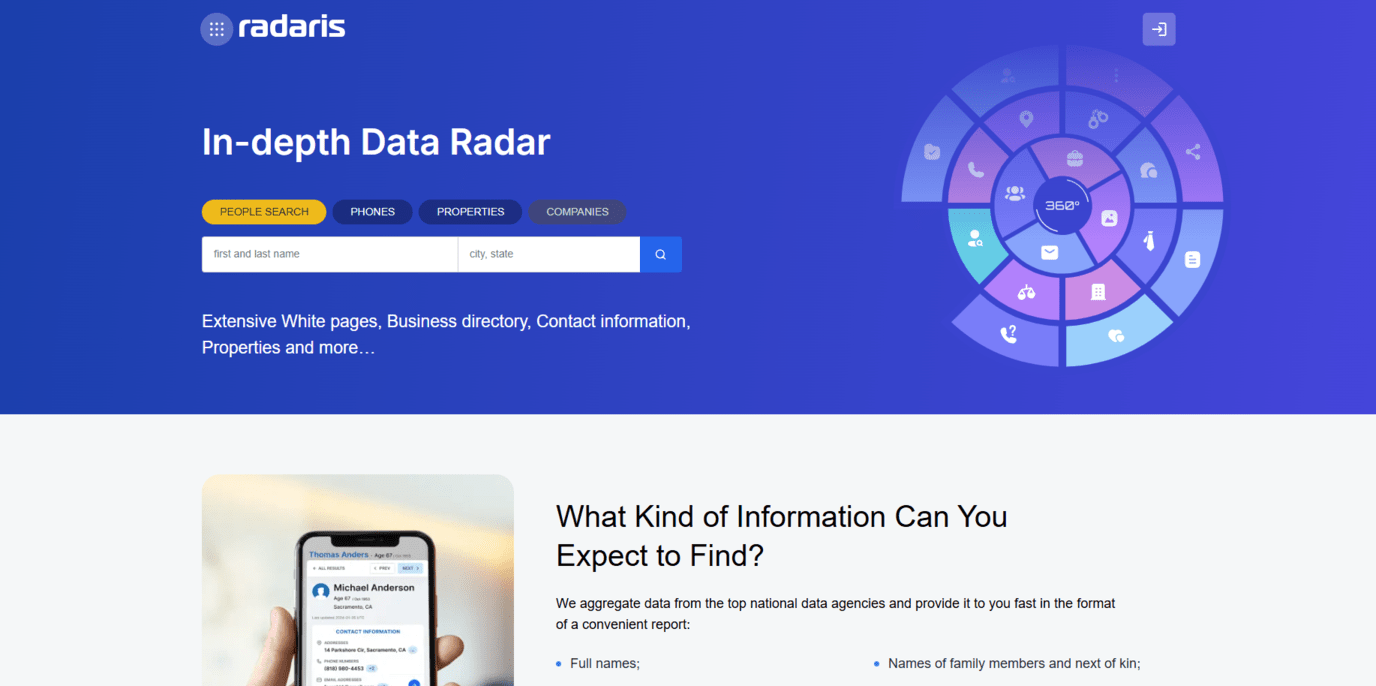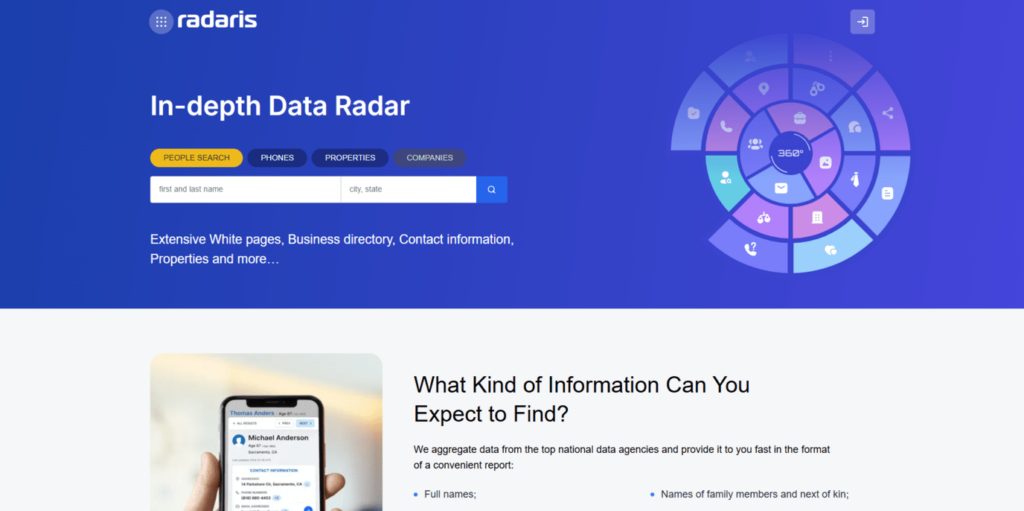Is Radaris Safe?
Laura Martisiute
Reading time: 4 minutes

Table of Contents
If you use or plan to use Radaris, you need to know: Is Radaris safe?
Below, we explain whether Radaris is:
- Safe to use.
- Good for privacy.
We also look at some steps you can take to improve both your safety and privacy when using this online service.
What Is Radaris?
Radaris is a people search and public records service that aggregates and provides access to information about individuals.

The platform allows users to search for personal details about people, including their contact information, addresses, social media profiles, and criminal records.
Radaris compiles data from various sources, such as public records, social networks, and other online sources, to create comprehensive profiles. It is often used for background checks, reconnecting with old friends, or verifying individuals’ identities and histories.
Is Radaris Safe?
Radaris is a legitimate company that offers public records and people search services, compiling data from various public sources. It is safe to visit and access the site without being concerned about scams or malware.
However, the personal information provided by Radaris to the general public can put individuals at risk of unwanted and malicious behaviors like stalking and harassment.
Is Radaris Private?
Radaris collects and displays a lot of personal information, which might be concerning if you’re worried about your privacy.
If you have a profile listed on Radaris (whether you use their service or not), you can opt out of their data collection service to improve your privacy. Opting out of Radaris requires you to create an account on their website, which can expose more of your personal data to the service.
In its privacy policy, Radaris says that it collects personal identifiers (directly and indirectly from users and data licensors), commercial information from third-party providers, internet activity of users on the Radaris application and from third parties, geolocation data (directly and indirectly), and professional or employment-related information (from data licensors and directly from users).
This implies that it gathers some information actively (when users create accounts) and passively (from users browsing its website), along with gathering information from third parties regardless of whether you use the service or not.
Radaris’s privacy policy has not been scored by popular privacy policy review sites such as the Common Sense Privacy Project and Terms of Service; Didn’t Read.
How to Improve Your Safety and Privacy On Radaris
For a safer and more private experience on Radaris, follow these steps:
- Opt-out of Radaris. Visit the Radaris website and search for your profile using your name and location. If you find yourself, use the opt-out option available on the Radaris website. You may need to provide some personal information to verify your identity for the opt-out process. You can follow our step-by-step Radaris opt-out guide.
- Adjust privacy settings on social media. Check and adjust the privacy settings on all your social media accounts to limit the amount of public information accessible by Radaris and other data brokers.
- Limit public posts. Make your social media posts, photos, and other content visible only to friends or a customized group of people.
- Remove personal information. Delete or hide personal details such as your phone number, address, and email from your public profiles.
- Check public records. Look into how public records (e.g., property records, court records) are managed in your locality. In some cases, you can request that certain information be redacted or limited to prevent data brokers like Radaris from finding and collating it.
- Opt-out of other data broker sites. In addition to Radaris, there are other data broker sites (e.g., Whitepages, Spokeo) that collect your information, and they often share data between them. Search for your information on these sites and follow their opt-out procedures.
- Google yourself. Regularly search your name on search engines to see what information is publicly accessible. Take steps to remove it if necessary.
- Remove old accounts. Delete old or unused online accounts that may contain personal information.
- Use privacy-focused services. Consider using services that prioritize user privacy and allow you to control your personal data.
- Use professional help. Consider hiring a professional data broker removal service such as DeleteMe.
Our privacy advisors:
- Continuously find and remove your sensitive data online
- Stop companies from selling your data – all year long
- Have removed 35M+ records
of personal data from the web
Save 10% on any individual and
family privacy plan
with code: BLOG10
news?
Don’t have the time?
DeleteMe is our premium privacy service that removes you from more than 750 data brokers like Whitepages, Spokeo, BeenVerified, plus many more.
Save 10% on DeleteMe when you use the code BLOG10.
















